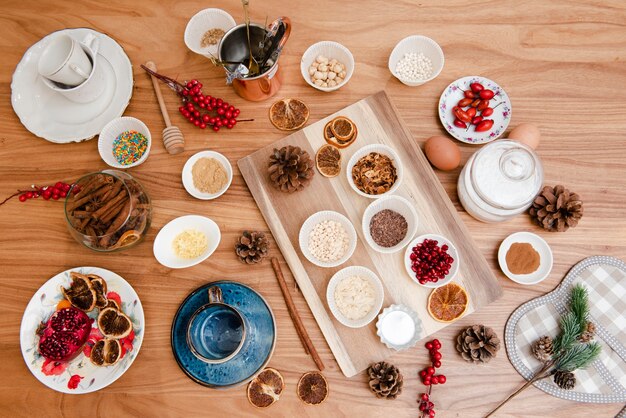
Tea is the world’s most popular drink after water, and it’s been enjoyed for centuries not just as a beverage but also for its medicinal qualities. Traditional Chinese medicine, for example, has long claimed that tea offers hypotensive benefits. Below is a simple guide to seven popular types of tea, their cultivation methods, key ingredients, and health benefits.
### 1. Green Tea
Green tea has been cherished as a medicinal drink for thousands of years. While it originated in China, it’s now enjoyed across Asia and beyond. The leaves are handpicked, then dried and heat-treated. A cup of green tea contains about 25 milligrams of caffeine.
Although green tea is packed with antioxidants and minerals, brewing it in water only extracts a portion of its benefits. Matcha tea, a powdered form of green tea, offers a more concentrated dose—one cup of matcha equals about 10 cups of regularly brewed green tea. Matcha has a mild, vegetable-like taste, similar to spinach.
**Health Benefits:**
– **Heart Health:** Studies suggest drinking green tea may reduce the risk of cardiovascular disease by up to 10%.
– **Brain Function:** Catechin compounds found in green tea may protect the brain, potentially lowering the risk of Alzheimer’s and Parkinson’s diseases.
—
### 2. Black Tea
Black tea is the most widely consumed type of tea in the West, accounting for over 90% of total tea sales. It is more oxidized than other teas like green or oolong, giving it a richer flavor and higher caffeine content—approximately 40 milligrams per cup.
**Health Benefits:**
– **Antioxidants:** Regular consumption may help prevent DNA damage associated with tobacco exposure.
– **Stroke Risk:** Drinking black tea daily could reduce the risk of stroke by 21%.
– **Cancer Prevention:** The antioxidants, particularly polyphenols and catechins, are linked to cancer prevention.
For maximum benefits, enjoy black tea without adding milk or sugar.
—
### 3. Oolong Tea
Oolong tea is partially fermented and semi-oxidized, giving it a distinct flavor profile and making it milder than black tea. Each cup contains about 30 milligrams of caffeine. It’s especially known for its combination of catechins, which enhance taste and health benefits.
**Health Benefits:**
– **Weight Management:** Oolong tea activates enzymes that help break down triglycerides, promoting calorie burning.
– **Hair and Dental Health:** It can reduce hair loss and improve oral health by controlling bacteria that cause tooth decay and oral cancers. It also strengthens bones, possibly preventing osteoporosis.
—
### 4. White Tea
White tea and green tea come from the same plant, but white tea is handpicked when the leaves are young and tender. It’s slightly less processed than other teas and contains only about 15 milligrams of caffeine per cup. Due to its labor-intensive harvesting process, white tea is more expensive.
**Health Benefits:**
– **Antioxidants:** Like green tea, it’s rich in catechins, which help protect against diseases, including cancer and cardiovascular issues.
– **Diabetes Prevention:** Research suggests white tea can help reduce common diabetes symptoms like high blood sugar and excessive thirst.
– **Low Caffeine Option:** It’s a healthier alternative to coffee due to its lower caffeine content.
—
### 5. Flavored Tea
Flavored teas are made by adding fruit, flowers, spices, or other aromatic compounds to black, green, or white tea. The level of flavoring depends on the ingredients used, typically ranging from 0.5% to 5% of the tea’s weight.
**Health Benefits:**
– **Same Nutrients as Regular Tea:** Flavored teas retain the same antioxidants found in their unflavored counterparts.
– **Enhanced Antioxidants:** Certain ingredients like blueberries may boost the tea’s antioxidant levels even further.
– **Oral Health:** Flavored teas can help reduce plaque buildup and inhibit bacteria that cause cavities and gum disease.
—
### 6. Herbal Tea
Herbal teas aren’t technically tea since they don’t come from the tea plant, Camellia sinensis. Instead, they’re made by steeping dried fruits, flowers, or herbs in hot water. They are caffeine-free and known for their pleasant taste and various health benefits.
It’s important to carefully check the ingredients in herbal teas, as some may contain plant compounds that are toxic. For instance, certain weight-loss teas may include harmful laxatives.
**Health Benefits:**
– **Blood Pressure:** Studies suggest drinking herbal tea daily can help lower blood pressure.
– **Digestive Support:** Chamomile tea, for example, is known to ease digestive disturbances effectively.
—
### 7. Yellow Tea
Yellow tea is a rare and expensive variety, produced through a unique process where it is steamed under a damp cloth after oxidation. This gives the leaves a distinct yellow hue. Like white tea, yellow tea is handpicked during early spring when the leaves are young and tender. It contains a moderate amount of caffeine, falling between green and black tea.
**Health Benefits:**
– **Weight Loss:** Drinking yellow tea regularly can support weight management.
– **Cancer Prevention:** Its high antioxidant content helps combat cancer-causing factors.
– **Dental Health:** Packed with antioxidants and fluoride, yellow tea can promote strong teeth and bones while preventing cavities.
—
Tea is an incredibly versatile beverage with countless varieties and health benefits. Whether you prefer green, black, oolong, or herbal teas, each offers its unique attributes to suit different tastes and needs.